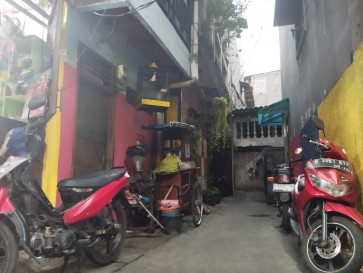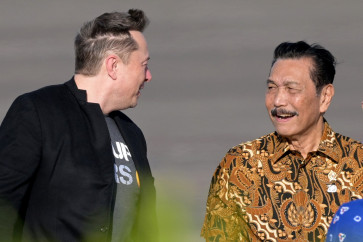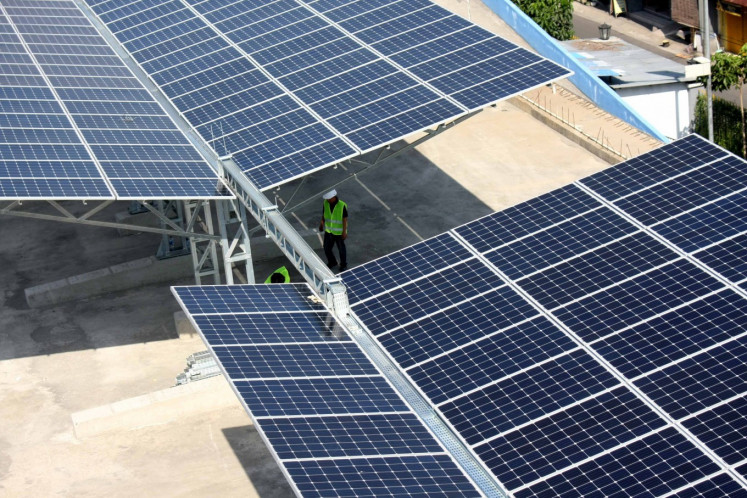Companies see the wood for the trees
The eyes of the world will be on Indonesia as we approach the presidential elections in July and last week, President Susilo Bambang Yudhoyono addressed the Forests Asia Summit in Jakarta in what will be one of his last speeches on this vital topic
Change Size

T
he eyes of the world will be on Indonesia as we approach the presidential elections in July and last week, President Susilo Bambang Yudhoyono addressed the Forests Asia Summit in Jakarta in what will be one of his last speeches on this vital topic. Under his leadership, Indonesia has seen a sea change in its commitment to environmental issues and sustainability.
The moratorium, announced in May 2011, on further deforestation ' despite being less extensive than some would like ' was a significant moment. Three years later, sustainability remains on the agenda for all of the prospective Presidential candidates.
Another sign of the extent of this transformation is the marked change that has come about in some corporate behavior in Indonesia.
It is no coincidence that during the same period European consumers have become increasingly conscious of the impact of their consumption habits on global deforestation. European companies such as Unilever, Nestle and Kingfisher have led the way in transforming their business models to respond to consumer demand for higher standards of environmental protection.
In Europe, it is governments who are now playing catch-up, as new legislation such as the European Union Timber Regulation seeks to tackle illegal logging, but activists, citizens and politicians are calling for the regulations to go further and to ensure that all timber products entering the EU markets come from a sustainable source.
In the last two years, we have seen corporates in the region rise to this challenge with the landmark deforestation commitments made by major companies such as Golden Agri-Resources, Asia Pulp and Paper (APP) and, more recently, Wilmar. In Asia it is the private sector, working with both local and international civil society organizations including Greenpeace, WWF, The Forest Trust and the Rainforest Alliance, that is leading and setting the agenda on what the new standard for sustainability should look like. There is consensus that a meaningful commitment to zero deforestation should be at the heart of this new chapter of responsible corporate behavior in Indonesia.
Of course, there are issues that need addressing. The ongoing dialogue over the Indonesian domestic timber licensing system, the SVLK, has shown the capacity gaps in the system that need to be tackled. Within areas of the Indonesian corporate sector, transparency and accountability need to improve. There is a need to resolve land conflicts locally through mediation, negotiation and, where appropriate, compensation. The underlying drivers of forest fires and deforestation need to be tackled.
Nevertheless, the ambition shown by Indonesian companies that have made zero-deforestation commitments ' commitments that, with hard work and a multi-stakeholder approach, can be achieved ' deserves to be recognized, applauded and encouraged. Just two weeks ago, an Indonesian company went one step further by committing not only to halt further deforestation but also to tackle large scale conservation at landscape level. APP's pledge to protect and restore 1 million hectares of natural forest not only complements its Forest Conservation Policy, which has committed the company to halting all further clearance of natural forest on its concessions in Indonesia, but also demonstrates that a company once known for questionable forest practices can now show much needed leadership through operations that recognize the value of conservation, communities and carbon stocks.
Words are easier than actions. The difficulty, as always, is in the implementation, and all of us will have to wait and see whether these companies have the stamina and the determination to meet their commitments. To do this will also require the support of neighboring concession holders, NGOs, communities and government, nationally and locally.
For those of us from the international community here in Jakarta who have witnessed firsthand how much the country has changed, we know that anything is possible. I hope such commitments ' properly implemented ' can act as a call to arms to the many others that are sitting on the fence.
After all, a sustainable forestry sector in Indonesia is of benefit to the business community and the natural heritage of the nation. But we should also ask ourselves what we as the international community can do to help these companies to succeed and thereby lead others to follow, ultimately setting a new higher standard of sustainability.
The UK stands ready to support actors such as the Government of Indonesia, APP, Golden Agri Resources and Wilmar in helping implement commitments to sustainable development.
_____________
The writer is British ambassador to Indonesia.









